Discovering Authentic Croatia's Secrets With Seoski Tourism
November 4, 2021 – Village tourism or countryside tourism - Seoski tourism in Croatia - offers authentic, traditional experiences. Aleksandra Kuratko, secretary of Udruga ruralnog turizma Hrvatske (Croatian Rural Tourism Association) tells us more about it, and their work to help facilitate it
Croatia's visitor offer is evolving and expanding. There are exciting aspects of authentic Croatia to be discovered. Away from the beach, villages inland often look remarkably similar to how they did one hundred years ago. There, crops are grown and produce made in ways passed down through generations of families. And, in some lucky instances, these family farmers are willing to open their doors, invite you inside and show you how they live.
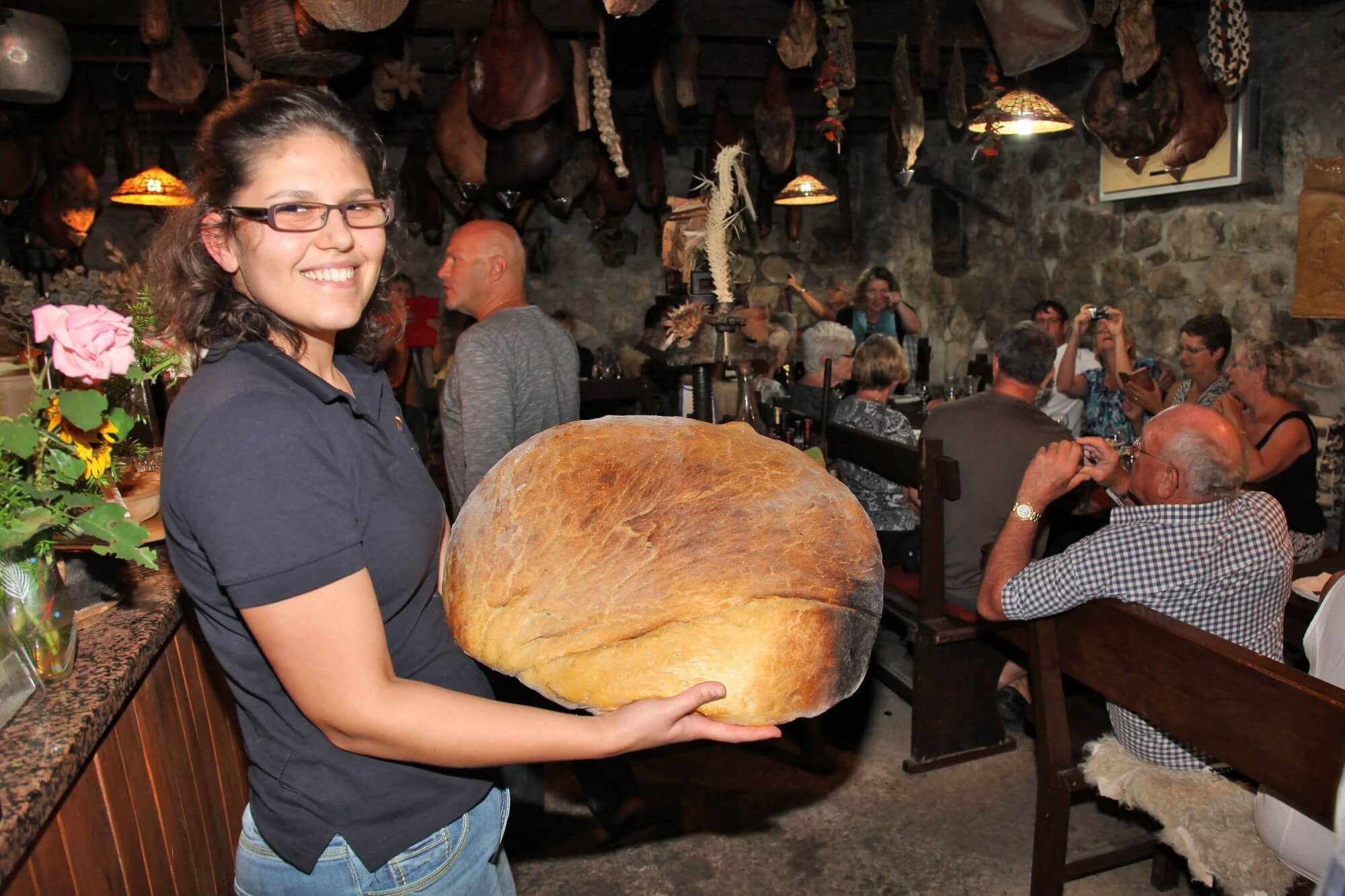 Bread from the peka at Agroturizam Antunović on Pelješac
Bread from the peka at Agroturizam Antunović on Pelješac
Seoski Tourism – translated as either village tourism or countryside tourism – is just that. Family farms that offer hospitality. These are some of the most homely and most welcoming accommodation experiences you can have in Croatia. Offering sights and sounds, tastes and flavours that you can't find anywhere else, visits or stays in Seoski Tourism places have long been loved by locals for weekend breaks or holidays outside peak summer. But, increasingly, these authentic Croatia experiences are being discovered by international visitors.
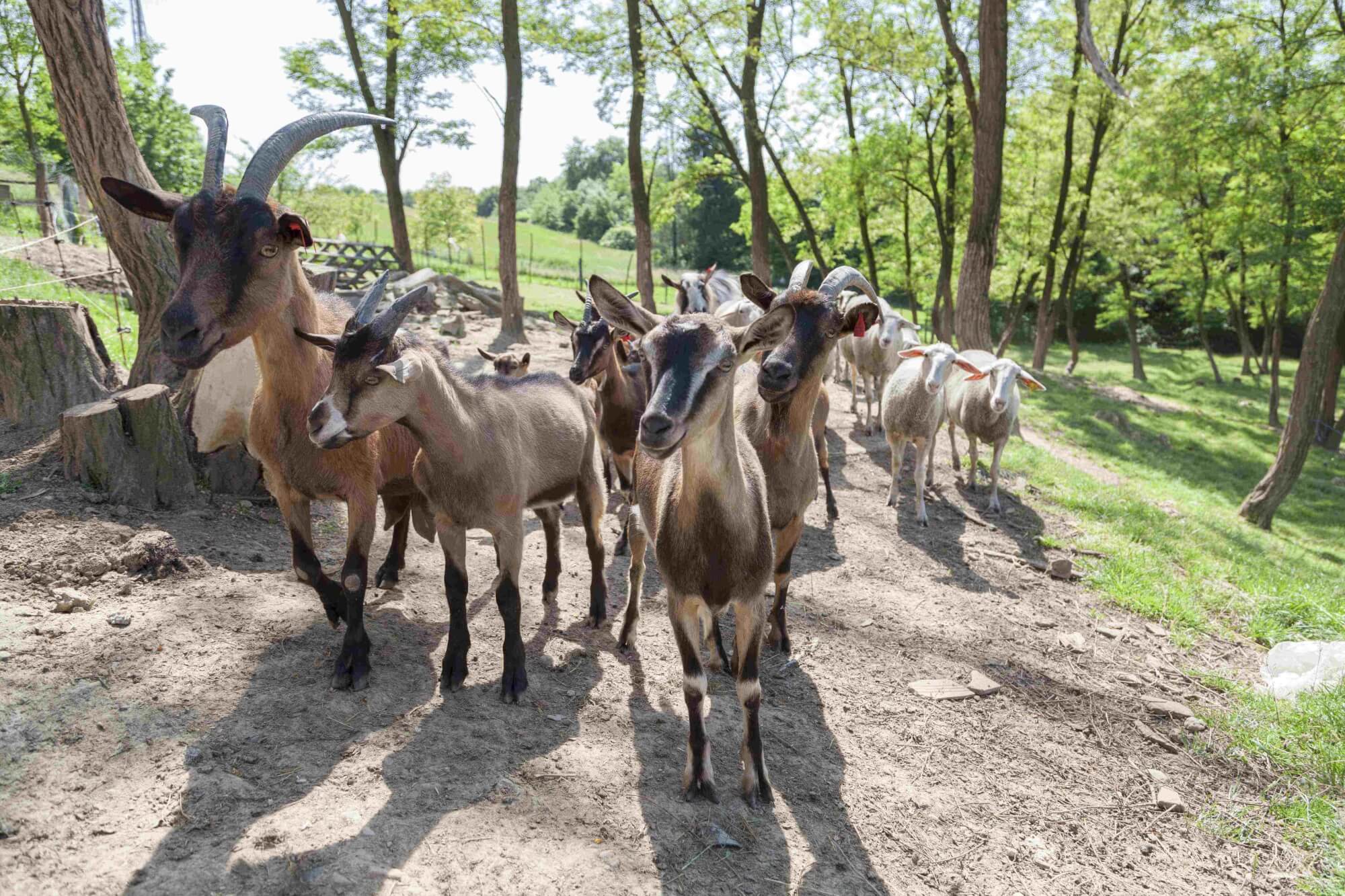 Moslavina goats at Kezele family farm © Davor Konjikušić
Moslavina goats at Kezele family farm © Davor Konjikušić
One institution trying to facilitate the growth in interest is Udruga ruralnog turizma Hrvatske - Croatian Rural Tourism Association. Since it was formed in 2016, they have tried to bring together Croatia's family farm hosts, to promote them and educate them, and to build bridges between these independents and tourist boards, tourist agencies, educators and even the wider world outside Croatia.
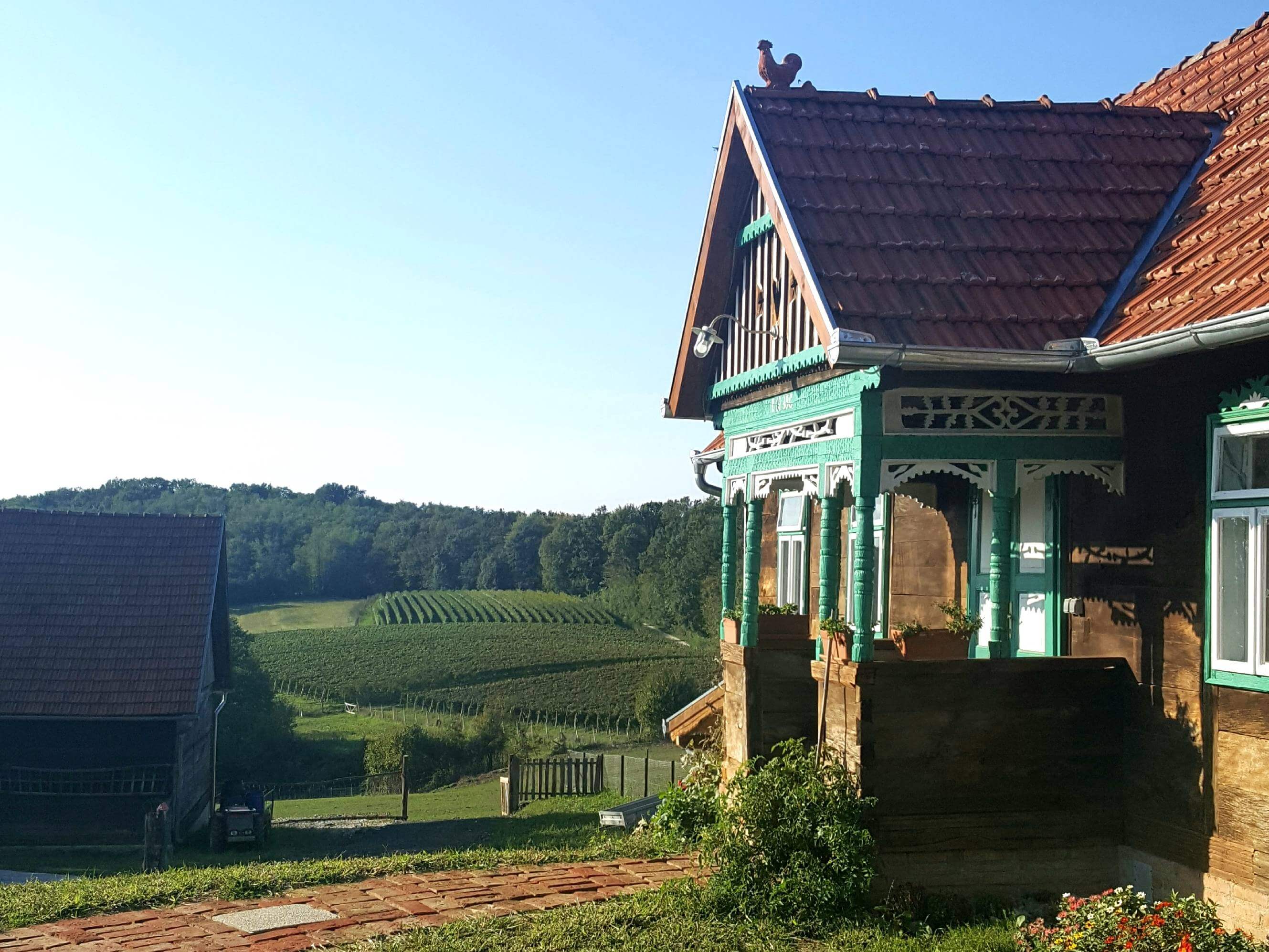 Seoski turizam Kezele in Šumećani, on the border of Zagreb County and Bjelovar Bilogora County © Davor Konjikušić
Seoski turizam Kezele in Šumećani, on the border of Zagreb County and Bjelovar Bilogora County © Davor Konjikušić
Based in Ivanić-Grad, Zagreb County, the Croatian Rural Tourism Association is currently touring the length and breadth of the country, holding workshops with as many Seoski Tourism family farms that will come. And if the farmwork doesn't allow them free time, then they can attend Croatian Rural Tourism Association workshops online.
On the eve of the association's online Seoski Tourism workshops for Central Croatia and Slavonia, TCN interviewed Aleksandra Kuratko, secretary of Udruga ruralnog turizma Hrvatske, to find out more about Seoski Tourism in Croatia.
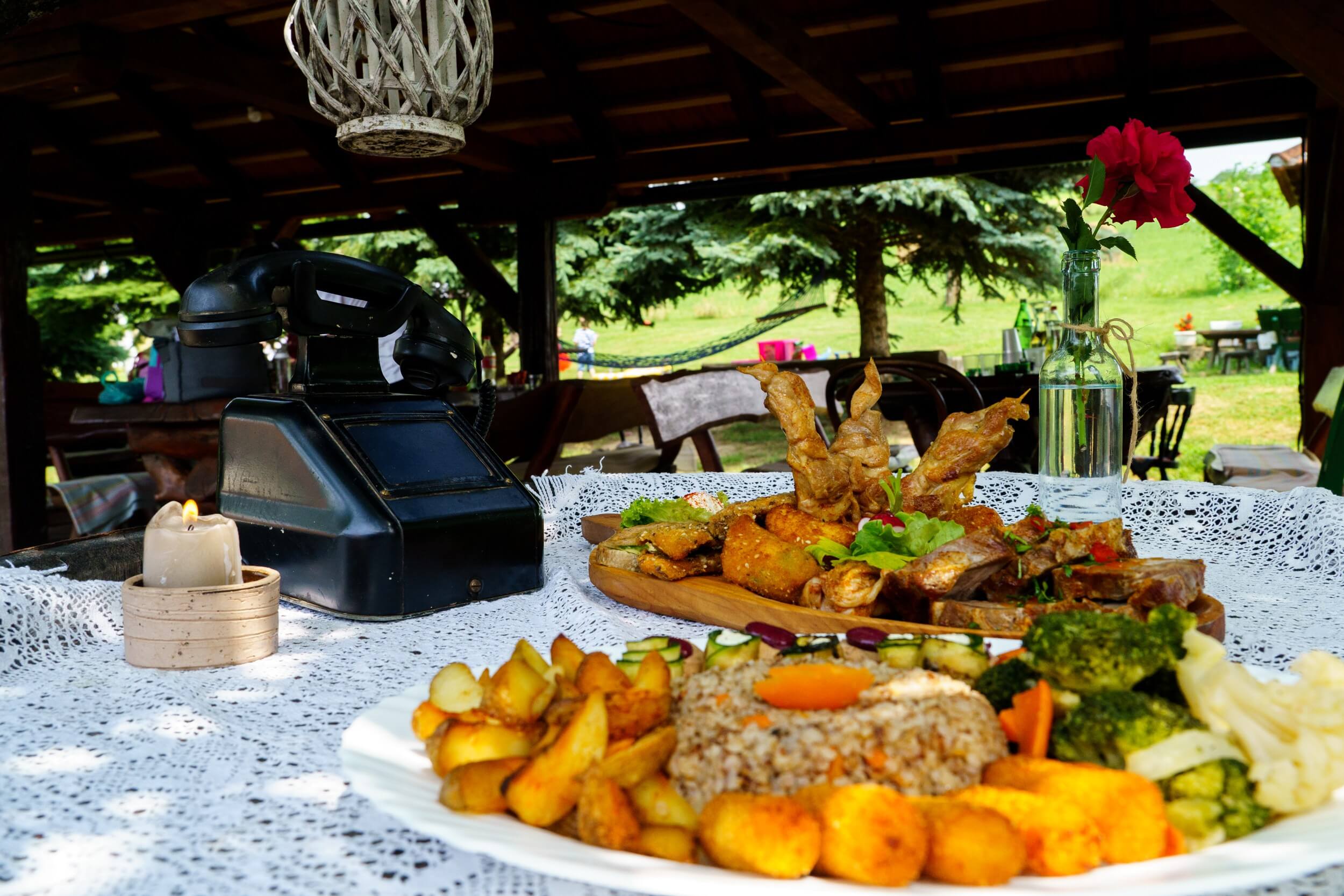 Prigorje specialties at Rakić family farm
Prigorje specialties at Rakić family farm
My name is Aleksandra Kuratko and I am secretary of Udruga ruralnog turizma Hrvatske. As an association, we are 5 years old.
We have 35 members, most of whom are service providers in what we call Seoski Tourism. We also have several tourist boards and two educational institutions as members.
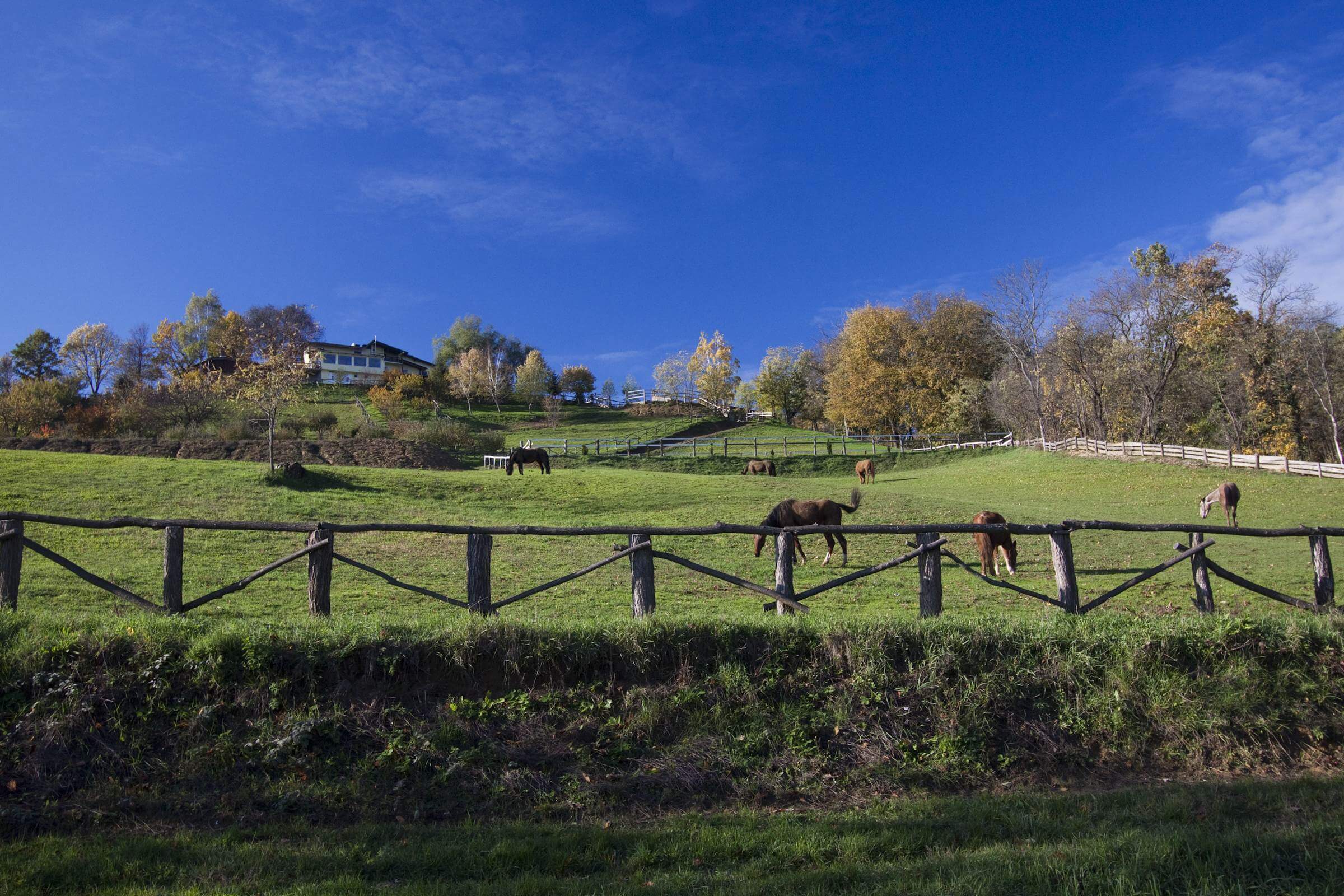 Bilogora horses in autumn at Agroturizam Na malenom brijegu © Vladimir Vlajinić
Bilogora horses in autumn at Agroturizam Na malenom brijegu © Vladimir Vlajinić
Seoski tourism is not quite the same as rural tourism, because rural tourism is many different types of tourism that happen in rural areas. Seoski tourism - which you might translate as village tourism - is quite specific. We assemble people who work in agriculture and who, at the same time, are also offering hospitality. In English, you might call them Farm Stays. Or Agro-tourism – a merging of agriculture and tourism.
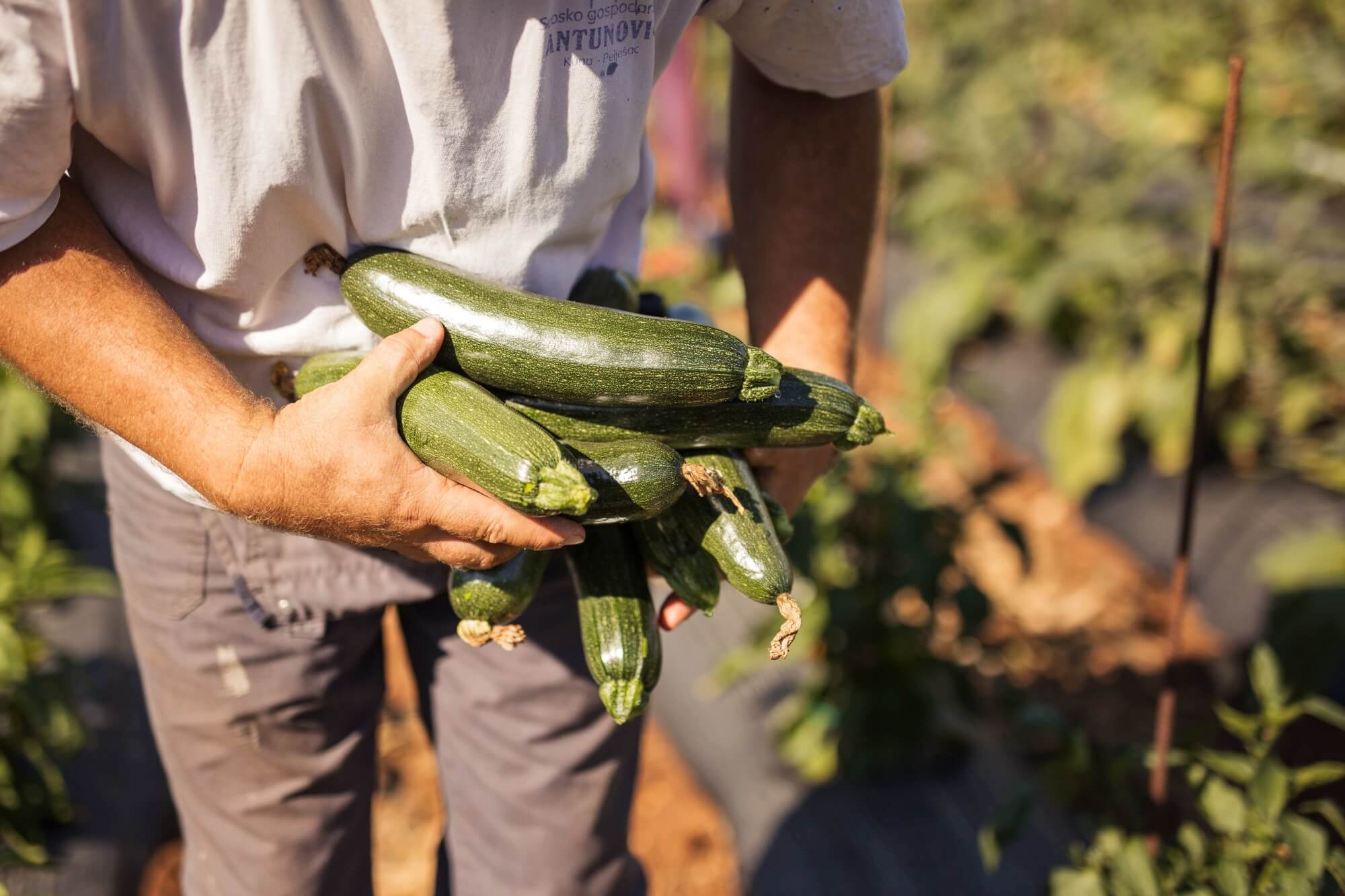 Fresh vegetables at Agroturizam Antunović on Pelješac
Fresh vegetables at Agroturizam Antunović on Pelješac
People who work on agricultural estates often take care of local cultural heritage. For example, they might maintain and renew traditional wooden or stone houses. Many also have etno collections, in which they preserve different objects from their region. Some of these objects might have been used in agriculture and households hundreds of years ago. So, they are preserving the cultural heritage of Croatian villages. This is what we call material cultural heritage. But, there's another kind.
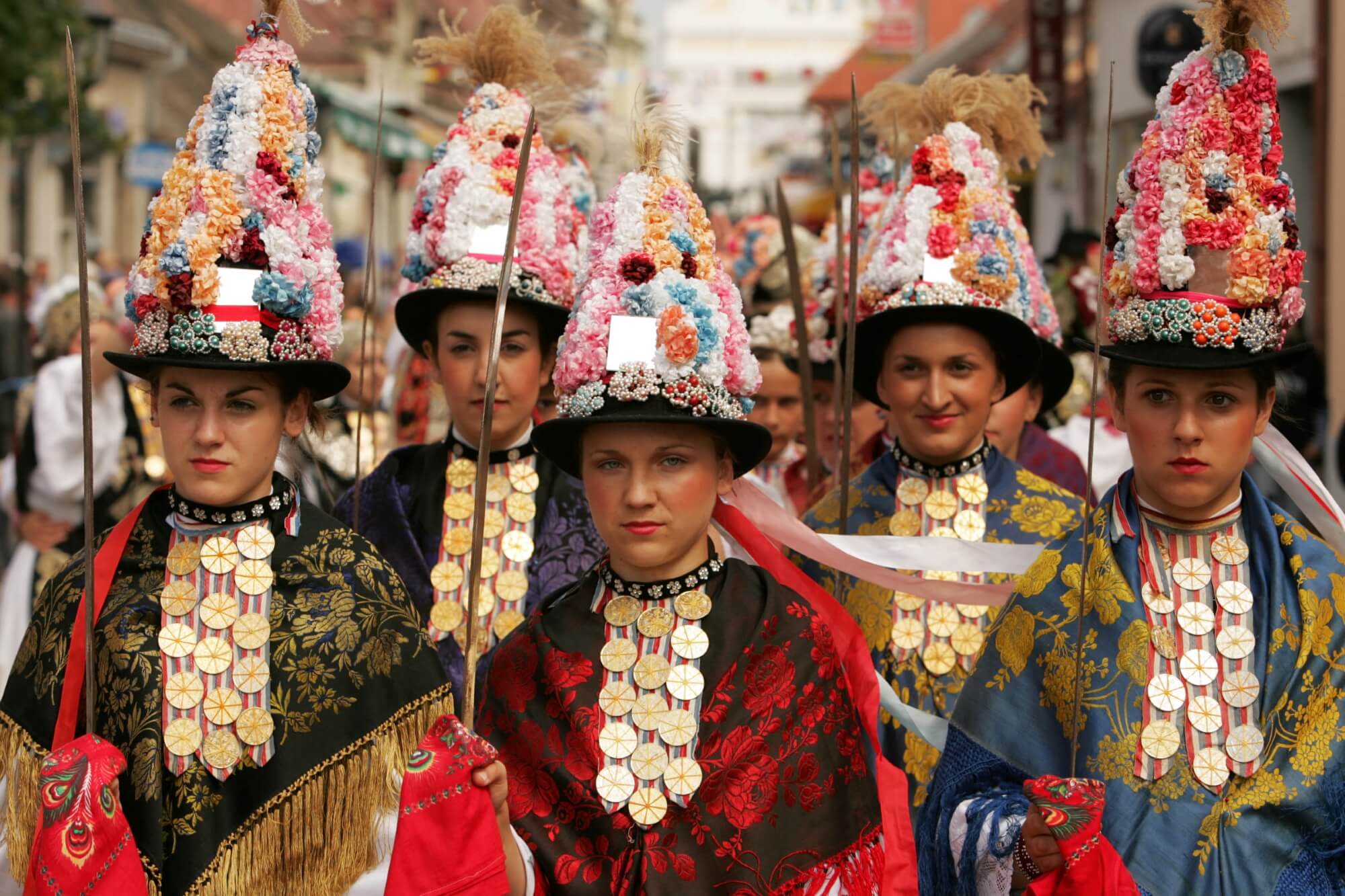 Cultural heritage preserved in one Slavonian village © Mario Romulić
Cultural heritage preserved in one Slavonian village © Mario Romulić
Non-material cultural heritage is also a part. That might be preserving old recipes of traditional, regionally-specific dishes. Or, it might be showcasing the songs and dance of local music.
We are currently running a project which is supported by the Croatian Ministry of Tourism and Sports in which we hold 37 Seoski Tourism workshops in the field all over Croatia. There will also be around 15 online workshops. The workshops are aimed at colleagues who currently operate in Seoski Tourism – they work in agriculture and offer hospitality. Also invited are local tourist boards and local action groups.
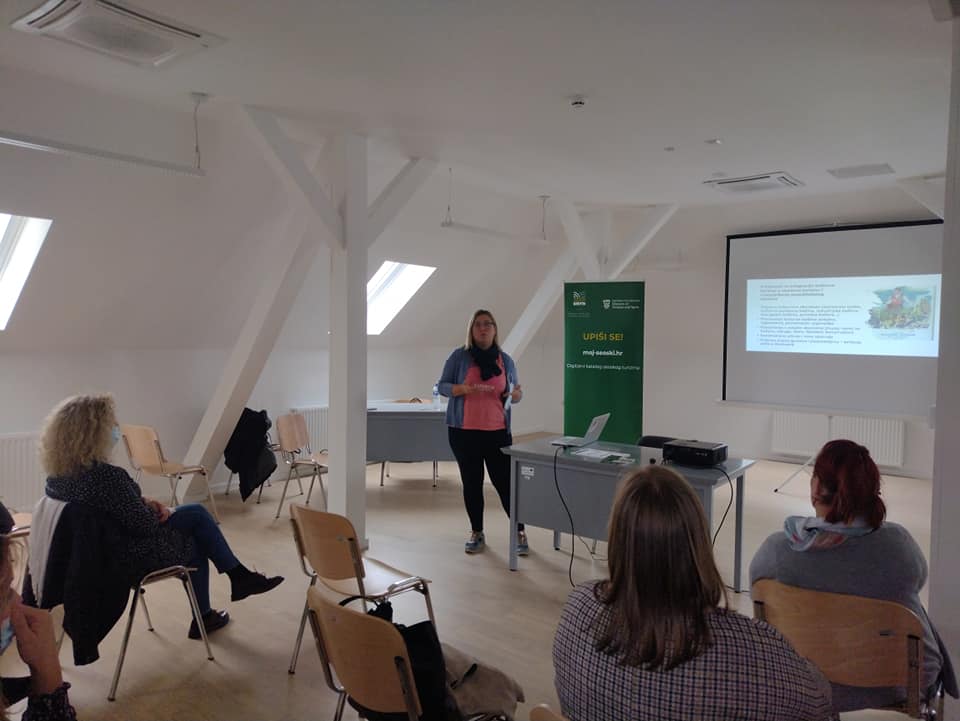 Photo from URTH workshop in Slatina
Photo from URTH workshop in Slatina
So far, we conducted 20 workshops in the regions of Central Croatia, Slavonia and Baranja, and Podunavlje. From next week until the end of the year, we will conduct the workshops in Istria, Kvarner, Lika and Dalmatia. Some service providers were not able to attend earlier workshops, because of work commitments of Covid. So, we decided to also offer access to the workshops online. Tomorrow is our first online workshop for Central Croatia and on Friday it's the online workshop for Slavonia.
These workshops are interactive discussions between our association, service providers and all other stakeholders. We discuss the legislative framework, which can be extremely complex. We talk about new trends in tourism for the post-pandemic era. We also discuss the importance of integrating cultural heritage in digital promotion.
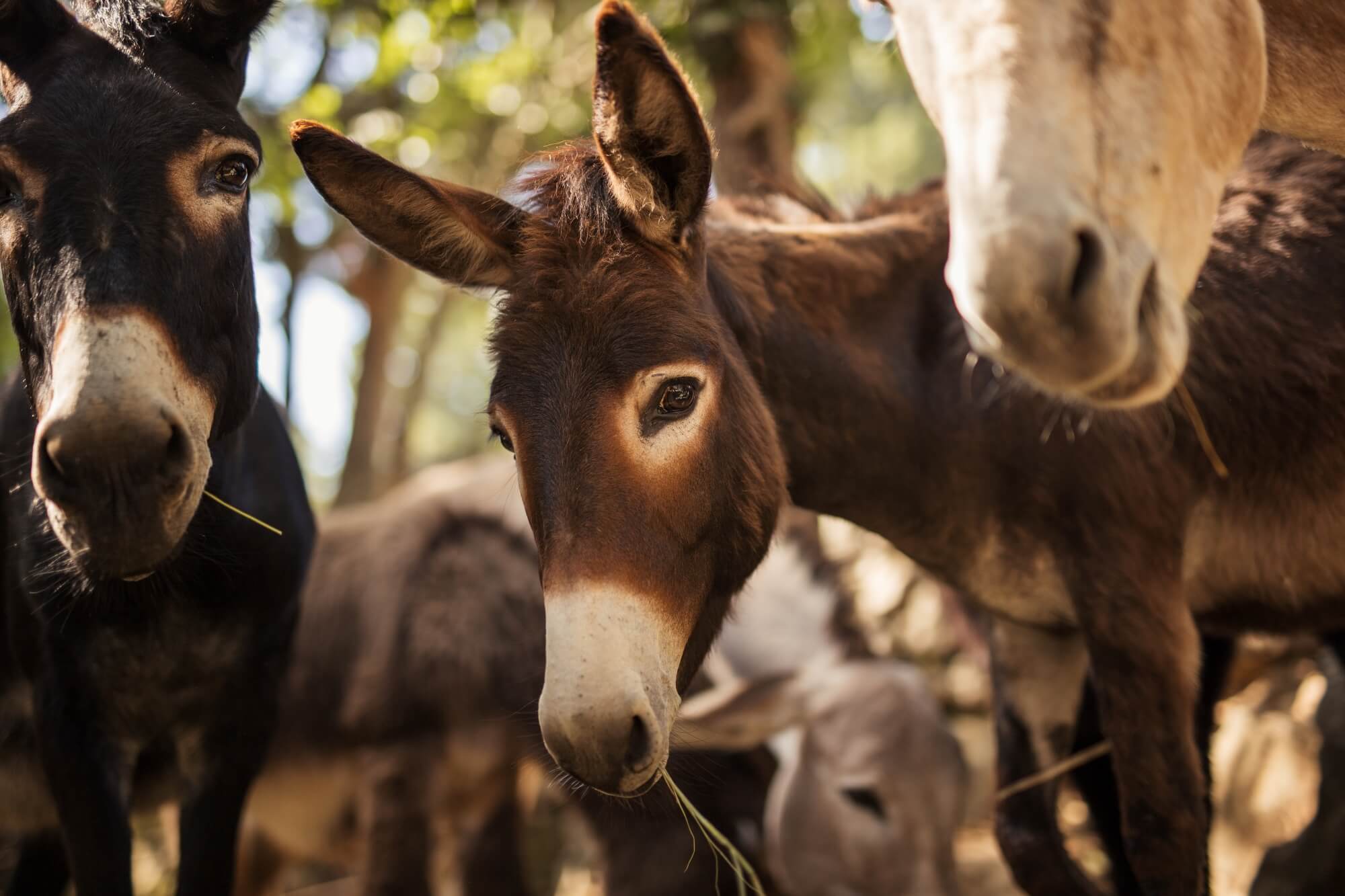 Donkey farm at Agroturizam Antunović on Pelješac
Donkey farm at Agroturizam Antunović on Pelješac
For the legislative framework, we have initiated the formation of a working group for the development of Seoski Tourism, which is now operating in the Croatian Ministry of Tourism and Sports. So, at the workshops, we ask if anyone is having issues. We collect the responses and address them in the working group.
Part of the workshop is the presentation of a new web application of Seoski Tourism, which we have developed with Croatian Ministry of Tourism and Sports. It has two purposes. One is to create a digital catalogue of Croatian Seoski Tourism. You can see region by region some of the Seoski Tourism options – currently around 40, those who have already enrolled.
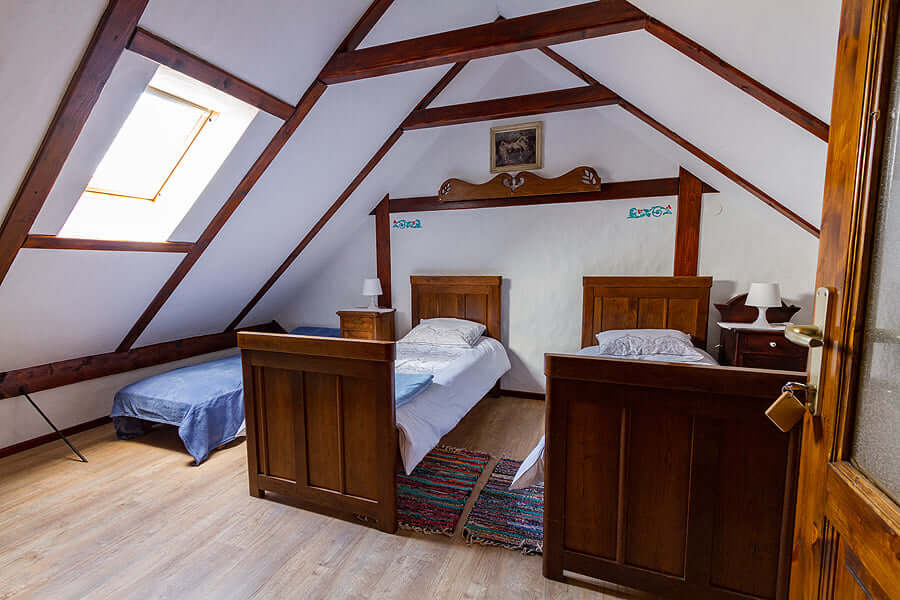 Podravina Etno rooms at Zlatni klas Otrovanec
Podravina Etno rooms at Zlatni klas Otrovanec
A version of the app is currently available on the website of the National Tourist Board. But, they are building a new website. The forthcoming version of the catalogue will likely be more user-friendly with many more functions and options. On the new website, Croatia's Seoski Tourism options will be detailed in many different languages. It should be a great resource not only for tourists but for travel agencies, journalists like you and for educational institutions. That's the reason we are devoting time in our workshops to encourage Seoski Tourism providers to enroll. We are just at the beginning of the process.
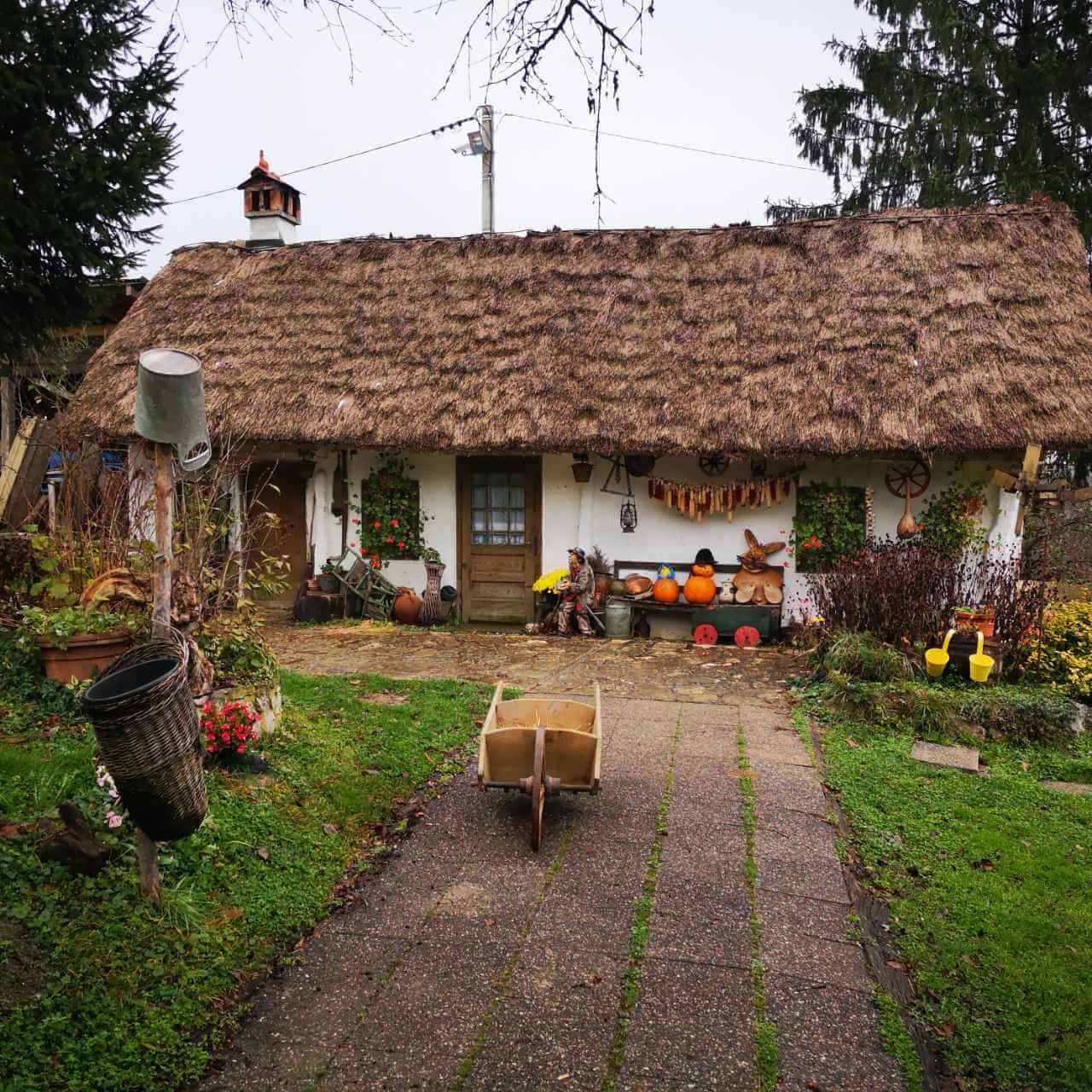 Grešna pilnica in Zagorje © Jasna Podboj
Grešna pilnica in Zagorje © Jasna Podboj
The second purpose of the app is to collect information about the service providers. This info will be used by our working group when defining a Croatian model of Seoski Tourism. So far, we have taken examples from Slovenia, Italy and other countries that are successful with Seoski Tourism. But, these models were entered into our legislative system without fully considering our distinct business and cultural environments. That is now about to change.
We are very happy that, following many years of partially successful advocacy, there is now political will at a ministerial level to really shape things up, to change the laws and regulations in order to facilitate Seoski Tourism. We want to encourage more Seoski Tourism, not to have people from agriculture being turned away because of the difficulty of the process and bureaucracy.
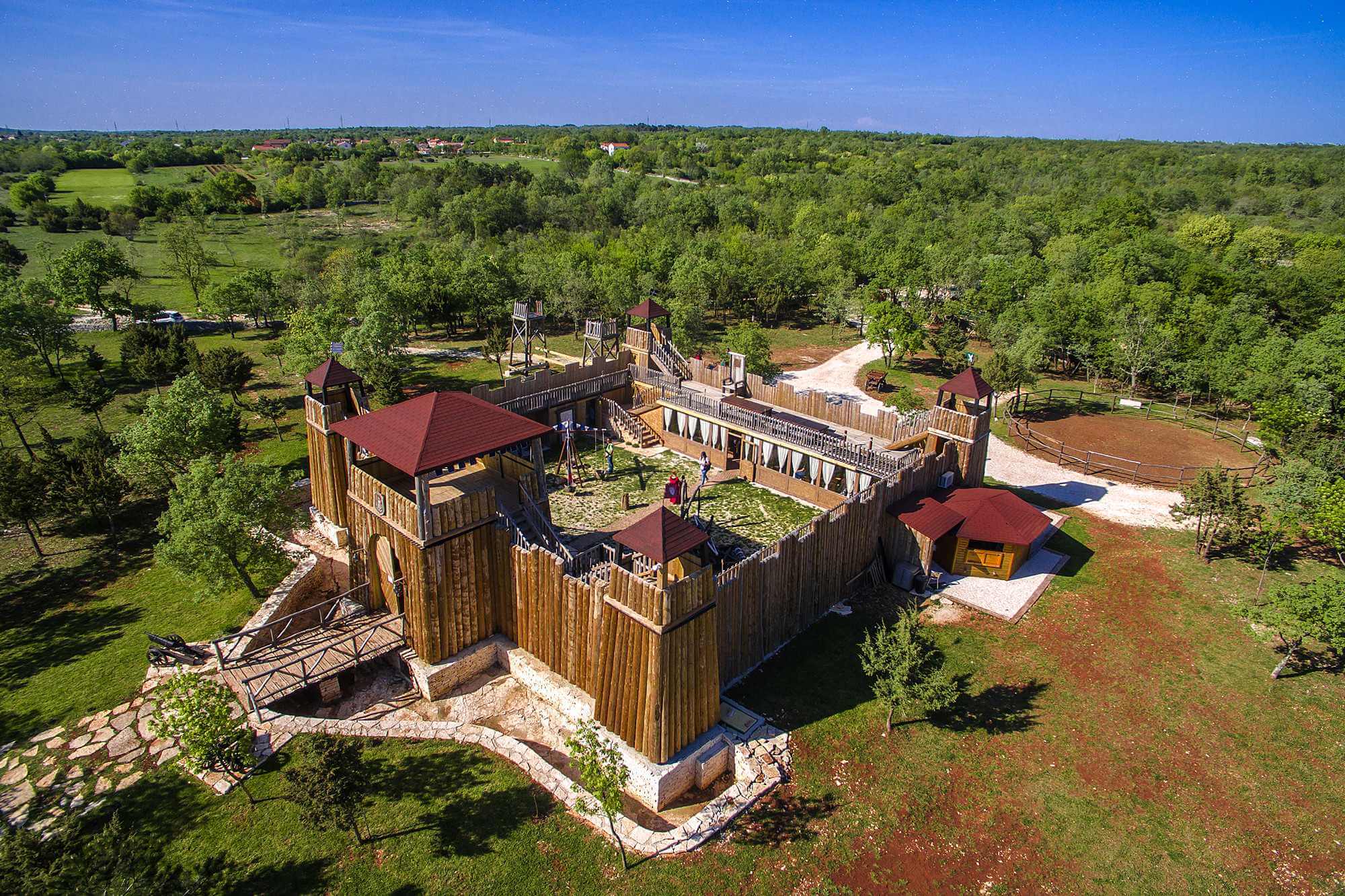 Medieval Theme Park San Michael © Silvia Otočan
Medieval Theme Park San Michael © Silvia Otočan
You said part of the workshops will focus on new trends. What are some of these?
Research has been done by a working group that is developing a new tourism strategy for Croatia. It's called Strategy for Sustainable Tourism to 2030. Under the auspices of this group, a number of research fields have been analysed.
The collected data shows that a huge percentage of tourists are now more inclined to eat locally grown and healthy food. They want to spend their time on estates that are run in accordance with ecological principles. So, they really care about issues like how waste is disposed of etc. They also pay a lot of attention to culture. They are curious to learn exactly how we are living, how we are working and how we produce things. They want to learn about our society and culture. And, importantly, they really care about how they spend their money. Above all, they want to spend money in areas that can help support local communities.
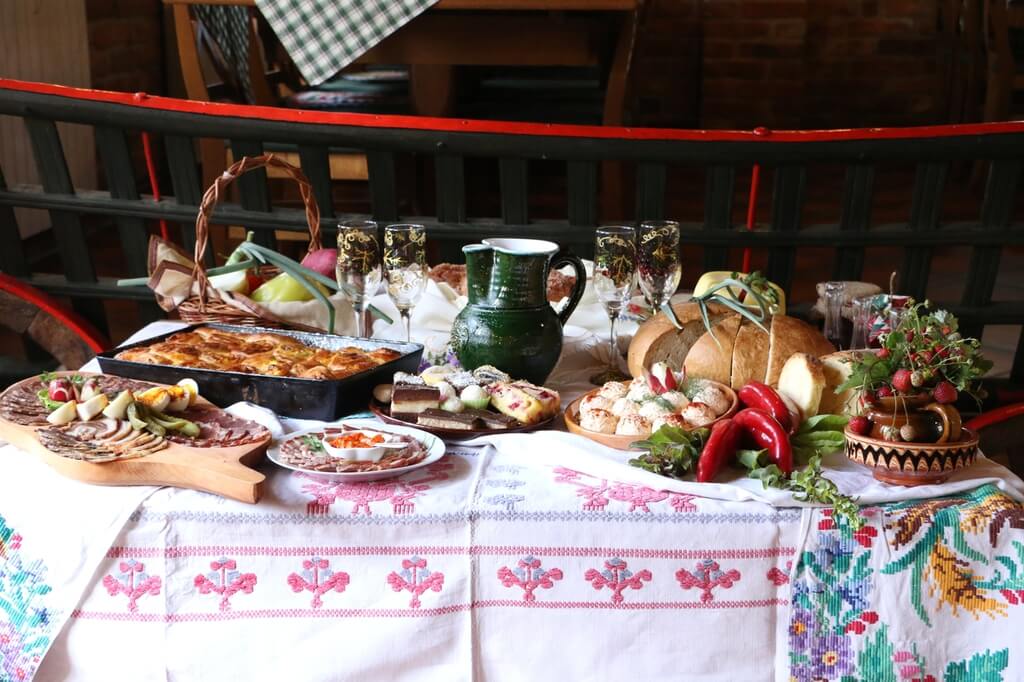 Prigorje Breakfast at Rakić Family Farm
Prigorje Breakfast at Rakić Family Farm
For us, this is really important. Because Seoski Tourism answers these demands to an incredibly high level. We do produce local, healthy food. Not only on the agricultural estates where you can experience Seoski Tourism, but also from their neighbours who just do agriculture. We are concerned with ecology, we protect cultural heritage and the money spent in Seoski Tourism stays in local communities, where it has very beneficial effects.
In the digital promotion part of the workshops we are trying to persuade people about the importance of their online presence. Basically, these days, if you're not online, it's almost like you don't exist. So, we try to explain the importance of having good-quality photos, short videos and a regular online presence.
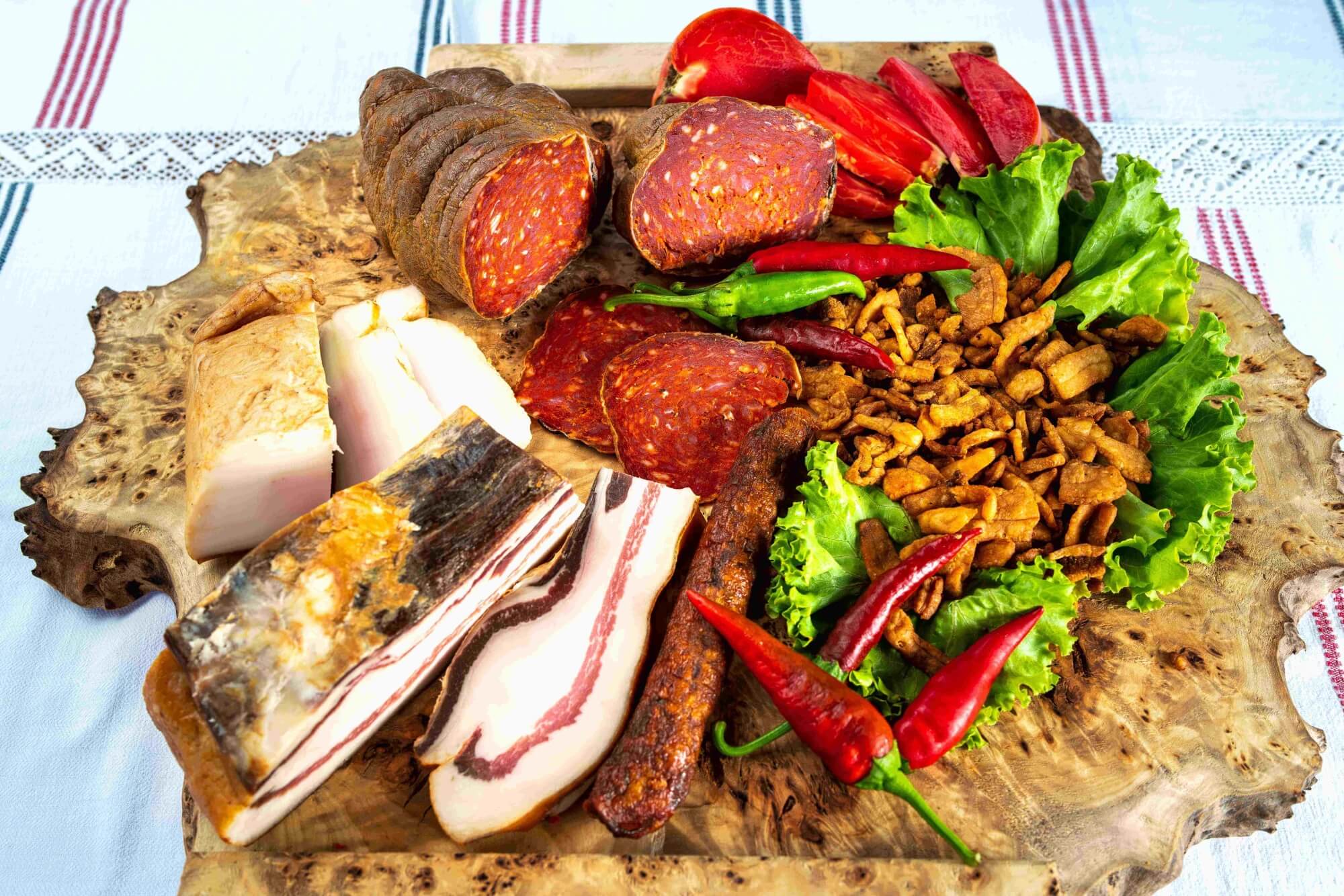 Kulen, čvarci and other specialties at Baranjska kuća © Denis Despot
Kulen, čvarci and other specialties at Baranjska kuća © Denis Despot
That's interesting. In some cases, it might be like two different worlds colliding - people who work in a traditional industry and a traditional environment having to adapt to a very modern way of operating. There's also another potential collision when providers learn of the expectations within modern tourism. Because these people can no longer just work in agriculture. To operate in Seoski Tourism, you're also very much expected to also be a host.
Yes. All of our current service providers who are successful within Seoski Tourism are also great hosts. It's essential. You can see it in almost all of the reviews for this kind of tourism. Guests come for the food and drinks and surroundings, yes. But, what they value the most, what they remember the most, is the host part of the experience. On the estates of Croatian Seoski Tourism, guests are welcomed like family. Across all of Croatian tourism we are expected to be good hosts. It's part of our reputation and the reason why many people come here from all over the world. In Seoski Tourism, it is vital we live up to those expectations.
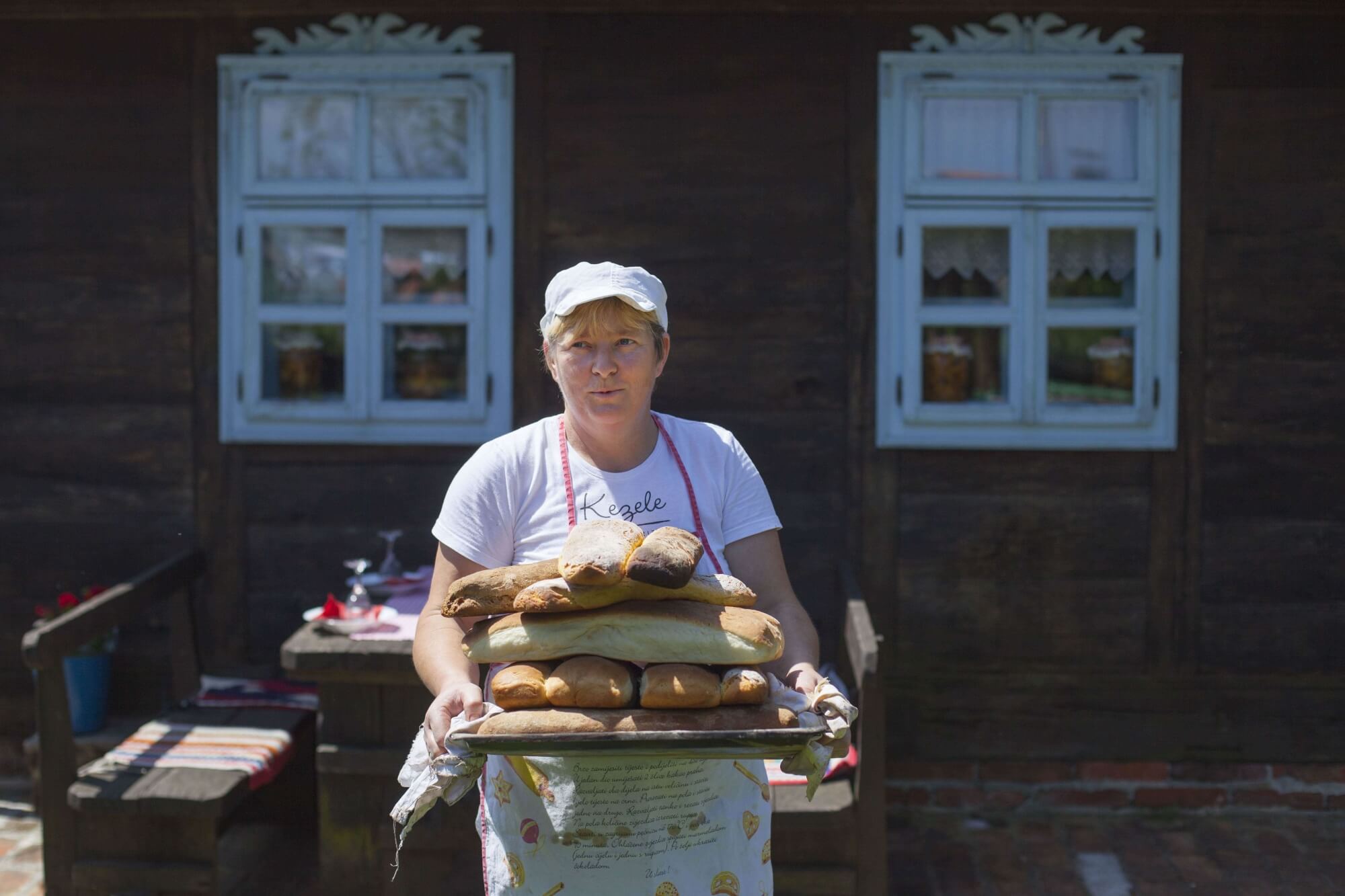 Kezele family farm © Davor Konjikušić
Kezele family farm © Davor Konjikušić
Another aspect of this, which is a more recently-observed element, is that visitors often want an insight into the actual lives, even the personalities of their hosts. They want not only to taste the homemade sausages you make, but they also want to know how you do it, where you do it, how you learned to do that. When they go to Spain, they want to know how the people there make their wine. And, when they come to Croatia, they want to learn how we do it here.
So, all in all, those of us in Seoski Tourism are really busy. We are in agriculture, yes, but we are also in tourism and we are also online. With this more recently-observed aspect, we will need to try and devote even more time to our hosting. It can be difficult to balance the demands on your time. But, in our workshops, we are trying to persuade people to talk more about themselves, their lives, their cultural heritage. And, if there isn't time to do everything themselves, then to involve different and often younger generations of the family. Sometimes within the hosting or alternatively just with the online promotion and presence.
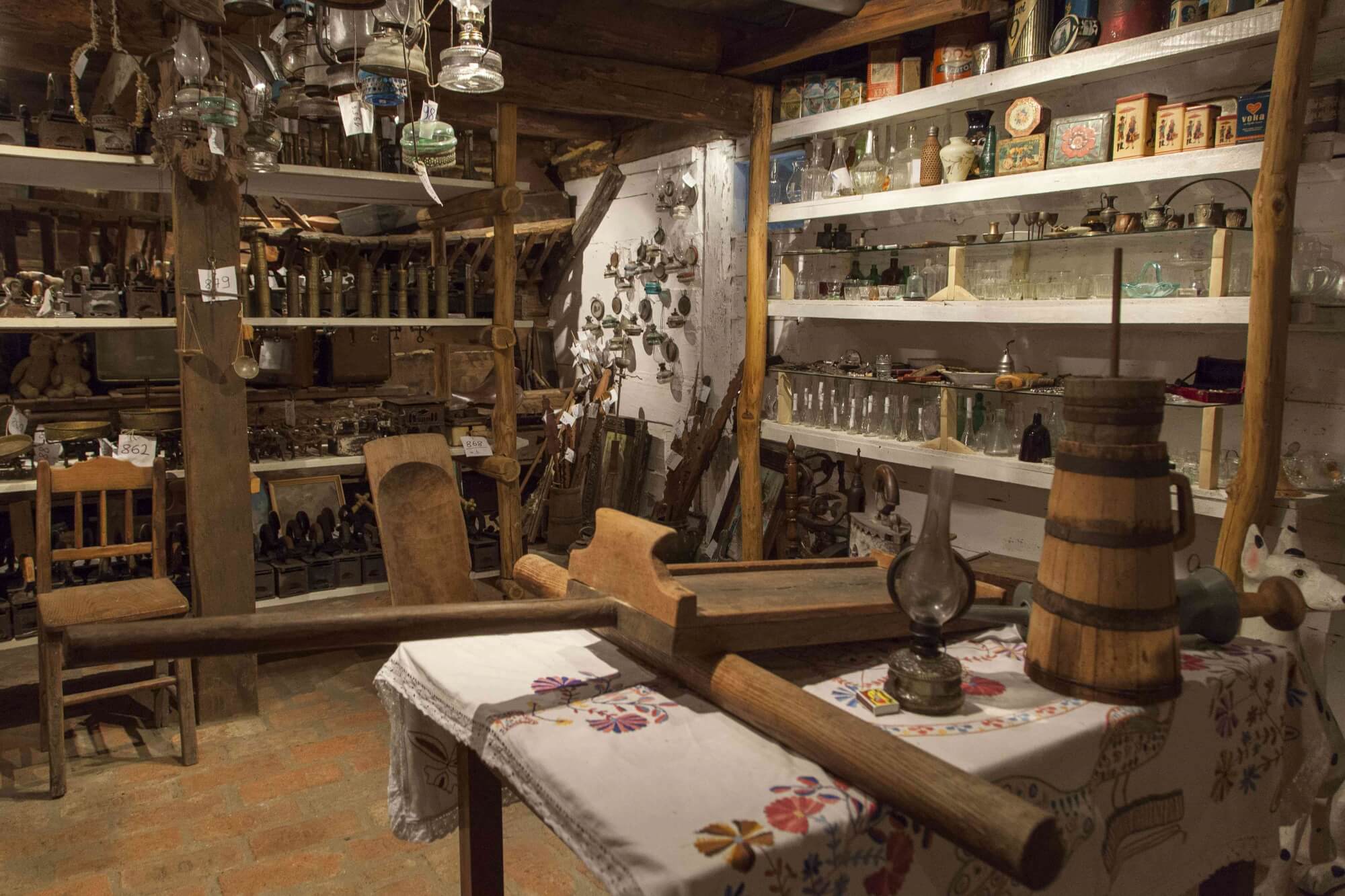 Kezele family farm ethno collection © Davor Konjikušić
Kezele family farm ethno collection © Davor Konjikušić
I've visited some family farms that were right at the start of their journey with Seoski Tourism and they seemed surprised that I was at all interested in what they do and how they do it. I think maybe they thought I was a bit crazy.
Yes, that is a response we sometimes also see at first. I think it's because our generation takes a lot of things for granted. We sometimes think that what we do is just what we do. We are not so good at showcasing it. “Why would I show someone how I make my cheese? I make my cheese like my grandmother used to make it” But, for those who open their doors to Seoski Tourism, inquiries about how they do what they do are only increasing. So, they seem to appreciate how we advise them in the workshops.
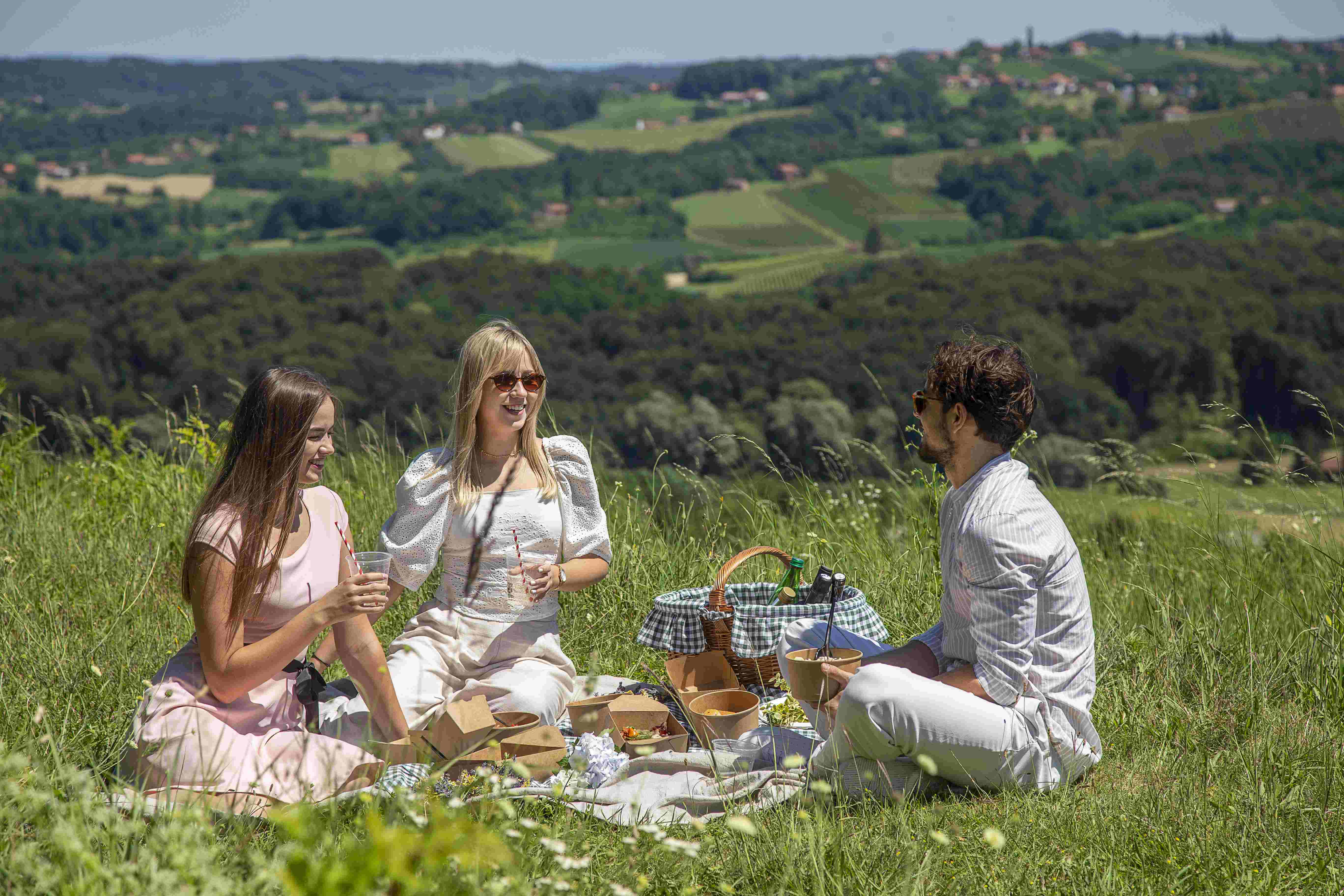 Picnic by Restaurant Međimurski dvori © Igor Nobilo
Picnic by Restaurant Međimurski dvori © Igor Nobilo
We are trying to let our producers know that Seoski Tourism is not just a platform to sell their produce and an overnight stay, but it's a full experience they can sell. There are agricultural farms in Austria that are established in tourism that you must pay only to visit. Of course, that doesn't happen currently anywhere in Croatia, even though some of our Seoski Tourism estates have sections that look like museums.
Some of these aspects are very new. And the feedback is great. I truly believe there are hidden treasures to be discovered in some Croatian villages. We are here to tell that story.
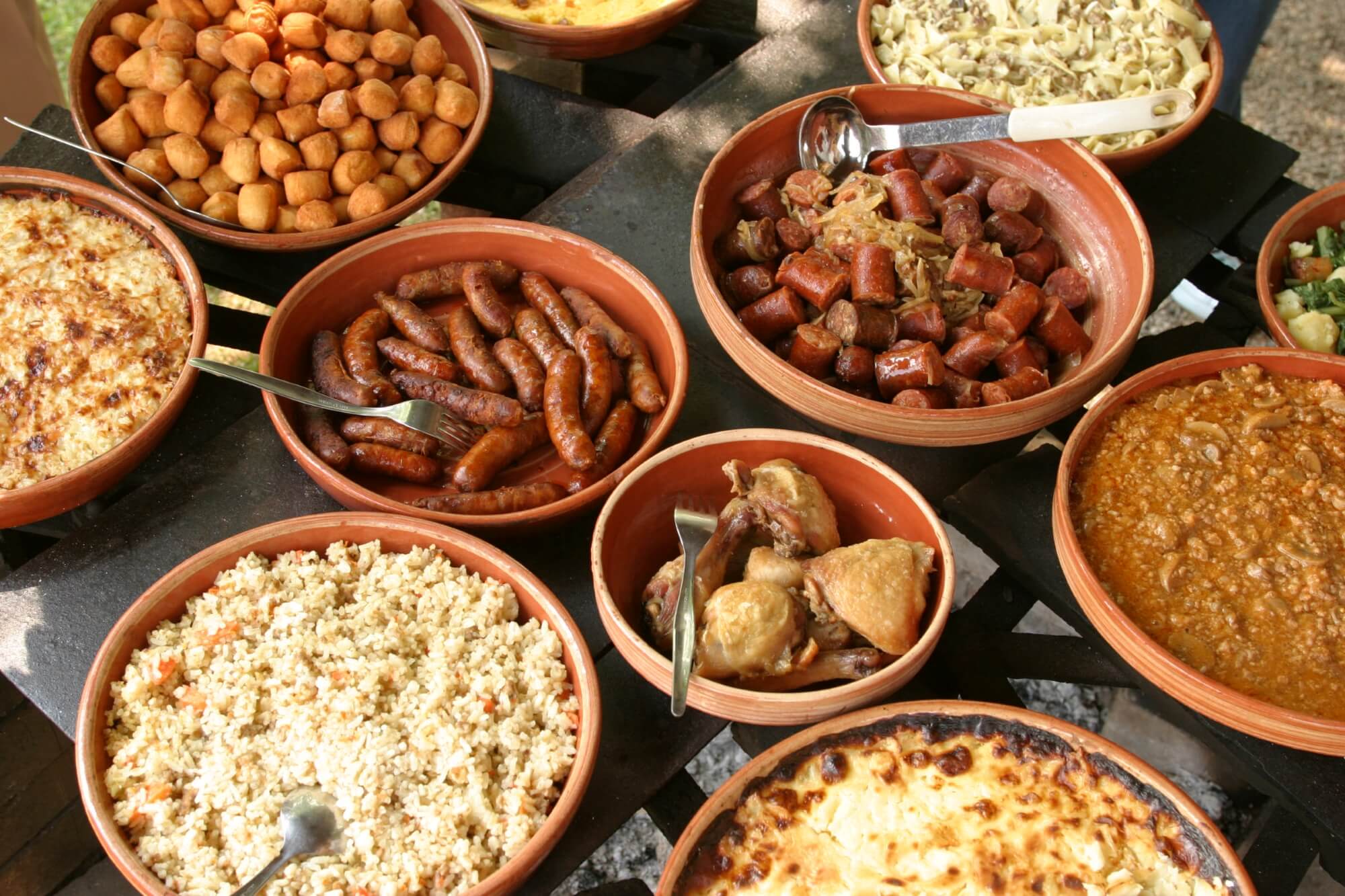 Selection of food from a Slavonian village © Mario Romulić
Selection of food from a Slavonian village © Mario Romulić
What is so rewarding about Croatian Seoski Tourism that international visitors would want to go to a traditional farm in some inland village instead of lying on the beach in Dalmatia for 14 days?
People come because they really want to see a different side of Croatia. And, there are many different aspects of Croatia to discover – not just Seoski Tourism, but also National Parks and Nature Parks. All of our current trends show us that more and more tourists are willing to come inland from the coast or to explore a different part of Croatia – inland Istria, for example, or continental Croatia.
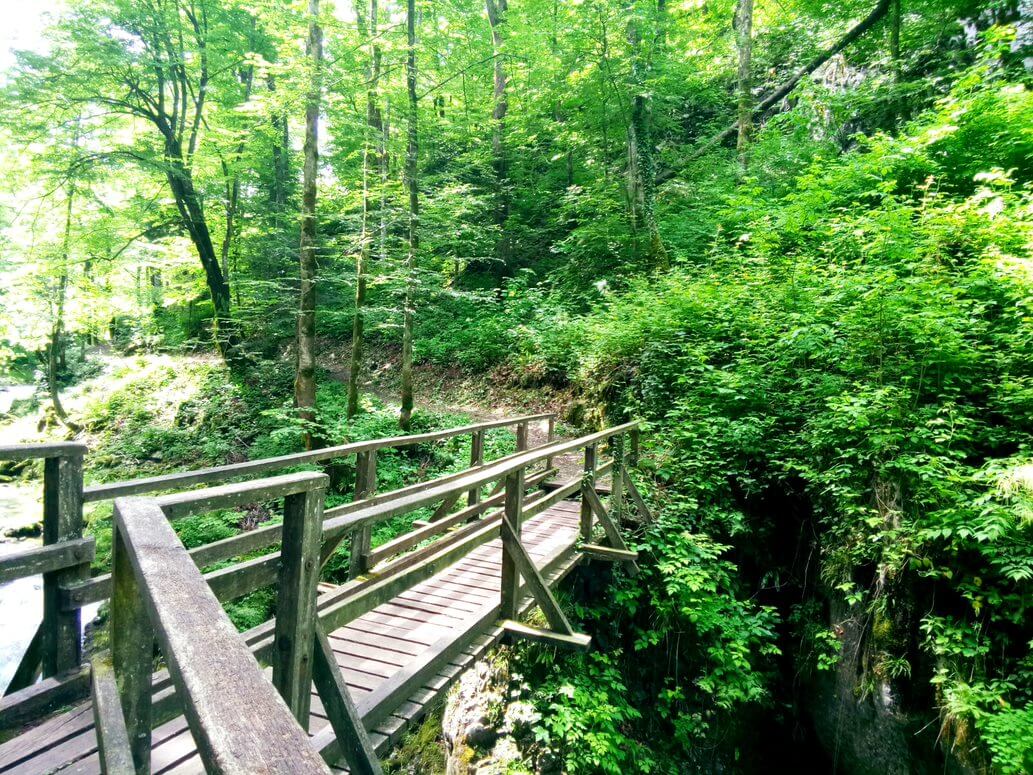 Kamačnik river canyon © Aleksandra Kuratko Pani
Kamačnik river canyon © Aleksandra Kuratko Pani
They really want to try authentic, local food. They want to eat healthy, to know what they are eating and how it is made. And, they want to experience flavours that are different from the usual ones they get from the supermarket.
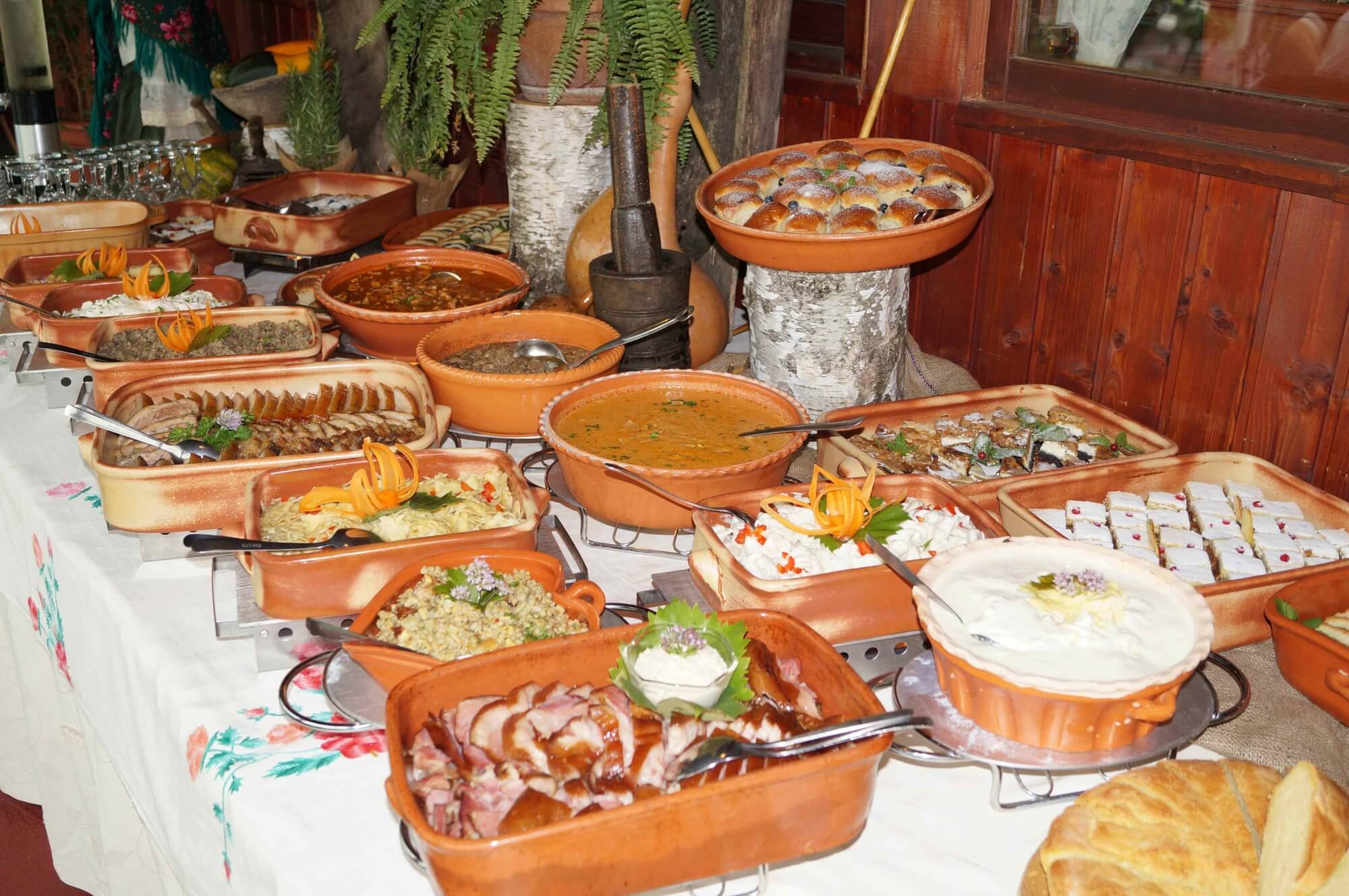 Traditional Međimurje table at Etno restaurant Međimurski dvori
Traditional Međimurje table at Etno restaurant Međimurski dvori
Also, I would say that with Seoski Tourism, people get to know better an authentic version of Croatia and its culture. It's a story we hear very often from our members. Some of them are visited by large groups from cruisers. These are people who might be on a cruise on the Adriatic and who journey inland for a day trip. Or, it might be a group who are cruising the Danube and disembark to visit a family farm in Slavonia, Baranja or Srijem.
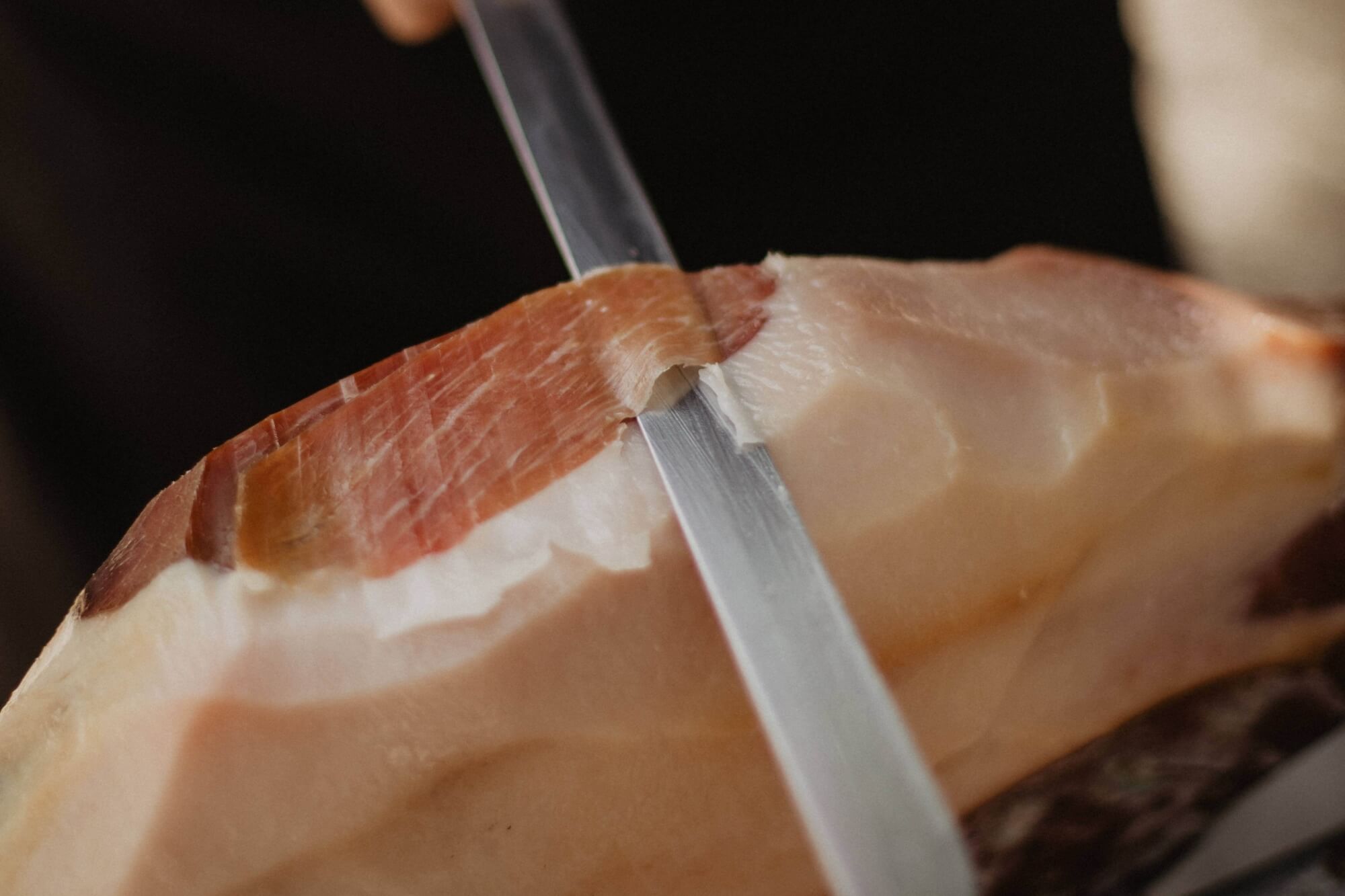 Prosciutto from Drniš at Agrotourism Kalpić © Ivana Kalpić
Prosciutto from Drniš at Agrotourism Kalpić © Ivana Kalpić
When they visit farming estates on day trips, it's very often a huge 'wow' moment for them. For many, in their minds, Croatia is simply sun and sea. And that's not entirely their fault. We, as a country, have done very little until now to promote alternative sides of Croatia. The visitors experience these wow moments because of the hospitality they receive and because of the tangible aspect of the visit. This is a modern aspect – people want to touch things, know how things feel, taste, smell. They want to ride on horses or feed them. Or take part in cultural activities. These parts of a visit to Seoski Tourism are very difficult to experience anywhere else.
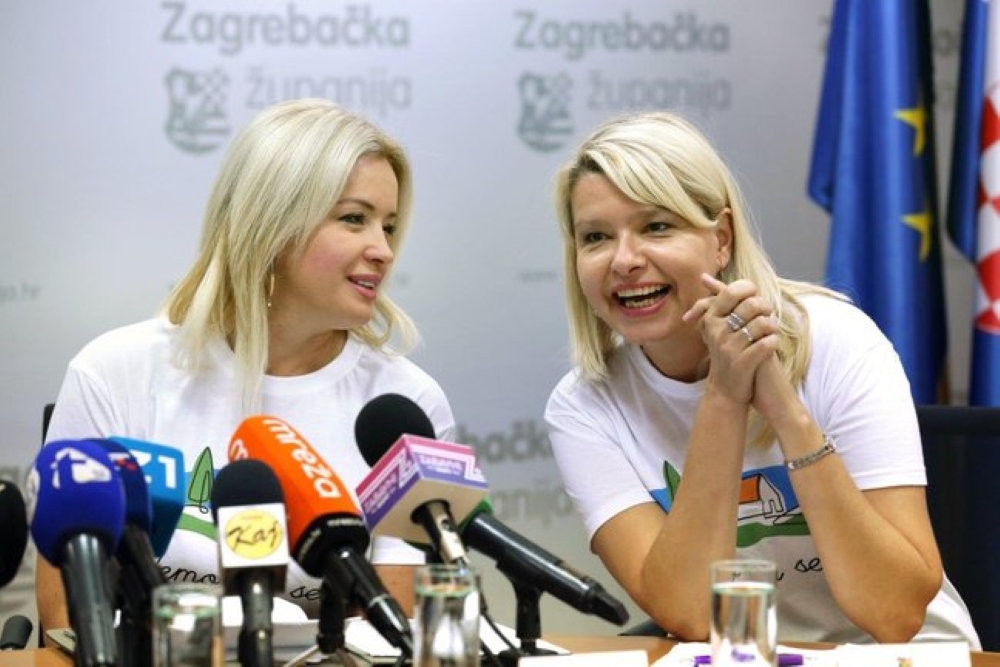 (left) Ivana Alilović, director of Zagreb County Tourist Board (right) Aleksandra Kuratko, secretary of Udruga ruralnog turizma Hrvatske (Croatian Rural Tourism Association) © Zagreb County
(left) Ivana Alilović, director of Zagreb County Tourist Board (right) Aleksandra Kuratko, secretary of Udruga ruralnog turizma Hrvatske (Croatian Rural Tourism Association) © Zagreb County
Udruga ruralnog turizma Hrvatske's online Seoski Tourism workshops begin today and their physical workshops continue next week in Istria.
If you'd like to read more about rural tourism in Croatia, then look here
Šolta Island Medicine Summer School Attracting Young Doctors to Rural Croatian Areas
August 15, 2021 - In 2018, Professor Tina Dušek, MD, Ph.D. organized the first Šolta Island Medicine Summer School to show young doctors that landing a job in a rural area was the best thing that could happen to them. The planned number of participants was 25. After receiving a staggering 300 applications, she knew she was on the right path.
If you are someone who grew up in a city, it is likely that the word ''island'' to you represents a picture of an everlasting summer. Salty air, gentle breeze, the sound of crashing waves. Peace and quiet. Who could want anything more?
For all their business during the summer, Croatian islands are experiencing depopulation. As much as people enjoy spending their holiday there, few would decide to extend their stay to all 365 days of the year.
All the things that attract tourists - the remoteness, the fact that there is no rush and no traffic, also mean the absence of many advantages of our modern-day life, one of them being the availability of state-of-the-art medical services. The thought puts off both ''regular'' people as well as budding medical professionals.
In order to change that, Tina Dušek, a professor at the Medical School of the University of Zagreb and an internal medicine specialist, with the support of the Croatian Society for Endocrinology and Diabetology organized the first Island Medicine Summer School (Croatian: Ljetna škola otočne medicine) in Stomorska on the island of Šolta, intended for medical students in their final years of study and newly-graduated doctors.
This September will see its third edition of Island Medicine Summer School, with the one last year being postponed due to the pandemic.
Why a school of ''island medicine''?
As explained on their page, ''the island symbolizes a geographically isolated area whose population has difficulty accessing larger health facilities. Such conditions - whether truly on an island or in a remote continental town - require the comprehensive training of a doctor, who must be an internist, a surgeon, an obstetrician, a radiologist, a psychiatrist, and more. In the absence of sophisticated diagnostic and therapeutic methods, the most valuable medical tool is the knowledge and experience, which we want to pass onto you''.
Island Medicine Summer School has two goals. One, to help young doctors gain authentic life and professional experience, and to increase their interest in professional engagement in geographically isolated environments, and the other, to contribute to the quality of life and health care in other geographically isolated areas.
In short, the Summer School prepares its participants to diagnose and treat patients in places without sophisticated diagnostic and therapeutic methods available.
''Bring medicine back to a human level''
As professor Tina Dušek explains, ''21st-century medicine strongly relies on arranging a dozen different tests and diagnostic procedures, a patient gets a referral for this and a referral for that. In the end, it results in moving away from person-centered care.
Our motivation was to think about medicine in ''island conditions'', that is, in absence of sophisticated diagnostic and therapeutic methods, the way it looked a hundred years ago, when a doctor or a medicine man, if you will, a healer, had nothing but his hands, his knowledge, experience, and his emotion to work with.
That is the idea of our Island Medicine Summer School – to bring medicine back to a human and humane level, where a relationship between a patient and a doctor is in the foreground and a starting point for everything else.''
One thing that professor Dušek has emphasized again and again throughout our conversation was the importance of human touch and empathy. It is easy to learn to do X if Y, to follow the steps you have been taught as a student. Prescribe this, refer to that specialist, make an appointment for a procedure - everyone can do that. However, there is more to a good doctor than issuing a correct diagnosis.
The right approach is everything, according to professor Dušek. Empathy, emotional intelligence, the patience to stop and truly listen to what people are saying - that is what makes a great doctor.
''Small communities are excellent ground for making a lasting impact''
''On the one hand, we still have people who approach medical professionals with reverence and unease. On the other, young doctors are often still building their confidence and can also feel unsure on the best way to speak to a patient. That is why I think that getting a position in a rural area, a small town, on an island, is a great path to self-developing both as an individual and as a doctor. Small communities are perfect for those with the desire and ambition to make an impact, come up with a project that will add to society in some way. When you work as an island doctor, you get to know your patients, you develop a connection.
Sometimes, they will come not because they need medical assistance, but because they need someone to talk to. Doctors working in rural areas will have an easier time to stand out and to bring about a positive change, much more effectively than they would in a complex system such as a clinical center in a big city.''
''An overwhelming response already producing results''
I ask if they have already heard from former participants of past Summer Schools. Is the changing perception of working in rural areas already noticeable?
''Yes, it is. Off the top of my head, there is one colleague who accepted a job on Murter and another who works in Sisak-Moslavina County. During our first year, in 2018. we received 300 applications. We try to choose candidates who have already shown interest in volunteering and working in the community. Grades are not the deciding factor here. As students are accepted based on a motivation letter, we also try to take into consideration that not everyone has a way with words. We try to give a chance to a diverse set of candidates.
''Participants work in small groups intensively with instructors, solving professional tasks in a "problem based" form and practicing manual skills. The local community has welcomed our initiative, as we organize free blood pressure and blood sugar measurement.''
For more stories about great initiatives such as this one, CLICK HERE.
Speaker Says Parliament to Pass Laws Enabling Revival of Rural Areas
ZAGREB, 6 Aug 2021 - Parliament Speaker Gordan Jandroković said on Friday that the parliament would pass laws aimed at enabling the demographic revival of rural areas, including the Dalmatian hinterland.
Jandroković made the statement during a visit to Split, where he met with Split-Dalmatia County head Blaženko Boban to discuss ways to stop emigration from the Dalmatian hinterland.
He noted that the state had sizable EU funds at its disposal, underlining the importance of preparing good projects to ensure that people, notably young ones, stayed in the Dalmatian Zagora region and started a family there.
Jandroković expressed confidence the plan would be achieved through joint efforts by local government units, county authorities and the central government, while the parliament would pass laws geared towards securing better living standards in the region.
"What is encouraging is the ample funding that we will obtain through the multiannual financial plan and the recovery and resilience plan, and we are talking about dozens of millions of euros, to be used smartly to create conditions to make Croatia attractive to live in," said Jandroković.
He also underlined the importance of infrastructure projects for people to stay in the Dalmatian hinterland, adding that he and county head Boban were agreed that aid to the Dalmatian hinterland should be provided in a similar way it was being provided for Slavonia, Baranja and Srijem.
Many people who left the country have started returning due to the pandemic, Jandroković said, adding that a large number of non-Croats were also arriving in Croatia, which needs labour.
"It would be ideal if a part of those who are now coming to work in Croatia were Croats, but cooperation is necessary and Croatian policy-makers must create conditions for return," he said, expressing a wish for a large number of members of the Croat expatriate communities to return.
For more on politics, CLICK HERE.
Petir: Agricultural Strategy Should Cover Status of Women in Rural Areas
ZAGREB, 8 March, 2021 - The chair of the Croatian Parliament Committee on Agriculture, Marijana Petir, has sent an initiative to the Minister of Agriculture to include activities aimed at improving the status of women in rural areas in the Agricultural Strategy and introduce a special sub-programme for women in rural areas.
Given that the Agricultural Strategy 2020-2030 is in the final stage of preparation, it is important for women in rural areas to be included in it in a separate section. That, in turn, would require preparation of an action plan that would deal with the status of women in rural areas, Petir said on the occasion of International Women's Day.
The plan would, among other things, address such important issues as the "invisible work" of farm women, access to land ownership, achieving economic independence, preventing the risk of poverty and unemployment, and increasing the representation of women in decision-making bodies.
Petir said that the national strategic plan, which is being developed, should include a special sub-programme for women in rural areas as provided for by the EU's common agricultural policy. Such a sub-programme could improve the status of women in rural areas, create jobs for them, help them in investing in physical assets, contribute to the development of farms and their operations, and ensure conditions for basic services and revitalisation of rural areas, she said.
"I hope that these activities will help improve the status of women in the rural areas of Croatia and that their irreplaceable role in sustaining the rural areas will start to be fairly evaluated," Petir said.
MEP Sokol and Suica Announce New Long-Term EU Vision for Rural Areas
ZAGREB, November 20, 2020 - The European Commission will develop a long-term vision for rural areas to enable them to make the most of their potential, which will also benefit Croatian villages and bring back young people, the European Commission's Vice-President Dubravka Suica said on Thursday.
Suica participated in a meeting of the Intergroup on Rural, Mountainous and Remote Areas & Smart Villages dedicated to a long-term vision for rural areas and creating a comprehensive strategy for their development until 2040, the press office of the European People's Party (EPP) said.
Croatian MEP Tomislav Sokol, vice-president of the intergroup, stressed that the goal of the intergroup was to strengthen territorial cohesion within the European Union, addressing the specific need of rural, mountainous and remote areas.
Rural areas are of the utmost importance for the EU, which depends on them for food, energy and raw materials. In addition, rural areas are a source of creativity and innovation in which a great part of European cultural and natural heritage is based, which needs to be preserved. The importance of this intergroup's work is exceptional: rural, mountainous and remote areas make up 80% of the territory and nearly 60% of EU population lives in them. As for Croatia, about 90% of the territory is rural and 10% urban, Sokol said.
He stressed that he would personally, and through the intergroup, work on making rural areas attractive and bringing young people back to them.
Suica said that the Commission would develop a long-term strategy for rural areas to enable them to make the most of their potential and support them in facing their unique set of issues, from demographic changes to connectivity, risk of poverty and limited access to services.
A hundred million people in the European Union live in rural areas, half of the territory is rural. Our aim is to offer them a new perspective of a green, digital and demographic transition. It has become less important where you are as long as you are connected, Suica said.
Sokol said that rural, mountainous and remote areas require special commitment and attention and called on the European Commission to adopt the European Rural Agenda with ambitious and concrete political goals that will be transformed into concrete activities on the ground.
By 2040 we will strive to make rural areas become attractive places to live and work in, especially for young people, Sokol said.


